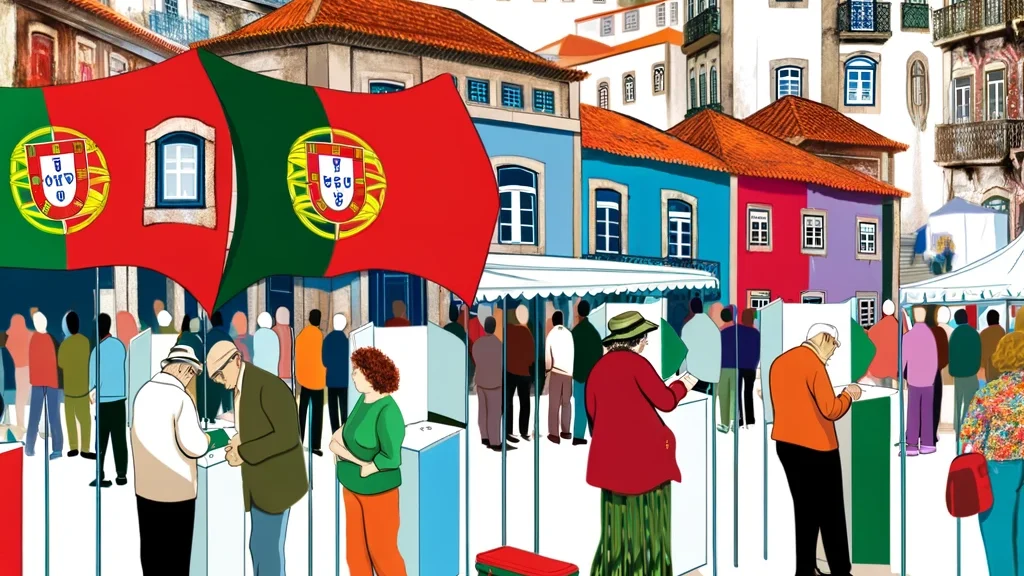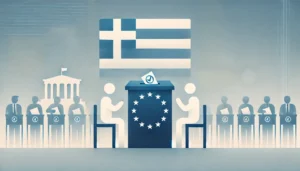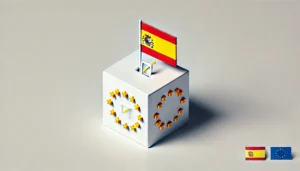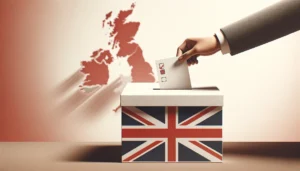Articles & News
- Home
- Blog
12. March 2024
EU-Policy
Elections in Portugal: After 8 years of a Socialist government, Portugal turned right

More voters than ever, the rise of the far-right, and uncertainty about the future
On Sunday, 10 March, Portugal witnessed a historic moment as over 6 million citizens participated in the electoral process – for the first time since 1995, Portugal experienced its lowest abstention rate, standing at 33.8%.
This surge in voter participation comes at a critical juncture in Portuguese politics, characterised by a dynamic landscape with uncertainty for the future.
After 8 years under the Socialist Party, Portugal has turned right – the centre-right Social Democrat-led (Democratic Alliance, formed by the Social Democratic Party (EPP), People’s Party (EPP) and Monarchist People’s Party) secured a narrow victory, obtaining 79 seats in the 230-seat National Assembly.
However, their path to forming a majority government remains uncertain, as the centre-left Socialist Party (S&D) clinched 77 seats. This is a major defeat for the Socialists, considering that they have lost 40 MPs in just two years.
The emergence of the hard-right Chega (ID) with 48 seats, underscores a growing trend towards right-wing populism, challenging the traditional dominance of mainstream political parties. The fact that there were only 12 far-right MPs in the previous parliament makes it the party with the biggest growth in these elections.
In 2024, Portugal commemorates the 50th anniversary of the 25 April Revolution, which marked the defeat of António de Oliveira Salazar’s dictatorship. Chega’s motto echoes that of Salazar: “God, country, and family,” with the addition of “work”. This resurgence reflects the recent surge of far-right movements across Europe, following trends seen in the Netherlands and anticipated gains by right-wing extremists in Austria and Germany.
At the moment, there are several government scenarios, the most likely of which is a minority government of the Democratic Alliance (EPP) taking into consideration that their leader, Luís Montenegro, made it clear throughout the campaign that he would not join forces with the far-right party.
The President of Portugal, Marcelo Rebelo de Sousa, has until 15 March – next Friday – to listen to all the parties and then he must announce who he will appoint as Prime Minister.
However, with these results so fragmented… when will elections be held again?

Author:
Juliana
Azevedo de Sá
Recent Post
-
 15 Jul 2024Navigating Discontent: Greek Parties Reframe European Election Results
15 Jul 2024Navigating Discontent: Greek Parties Reframe European Election Results -
 26 Jun 2024Shaping the Ballot: The Influence of National Issues on Spain's European Election Results
26 Jun 2024Shaping the Ballot: The Influence of National Issues on Spain's European Election Results -
 21 May 2024Local Elections in England: an impending change of direction in UK health policy?
21 May 2024Local Elections in England: an impending change of direction in UK health policy? -
 25 Apr 2024Navigating Slovakia's Political Maze: Disinformation, Power Plays, and the Road Ahead
25 Apr 2024Navigating Slovakia's Political Maze: Disinformation, Power Plays, and the Road Ahead -
 10 Apr 2024Navigating Digitalisation - Challenges and Progress in German Healthcare
10 Apr 2024Navigating Digitalisation - Challenges and Progress in German Healthcare
